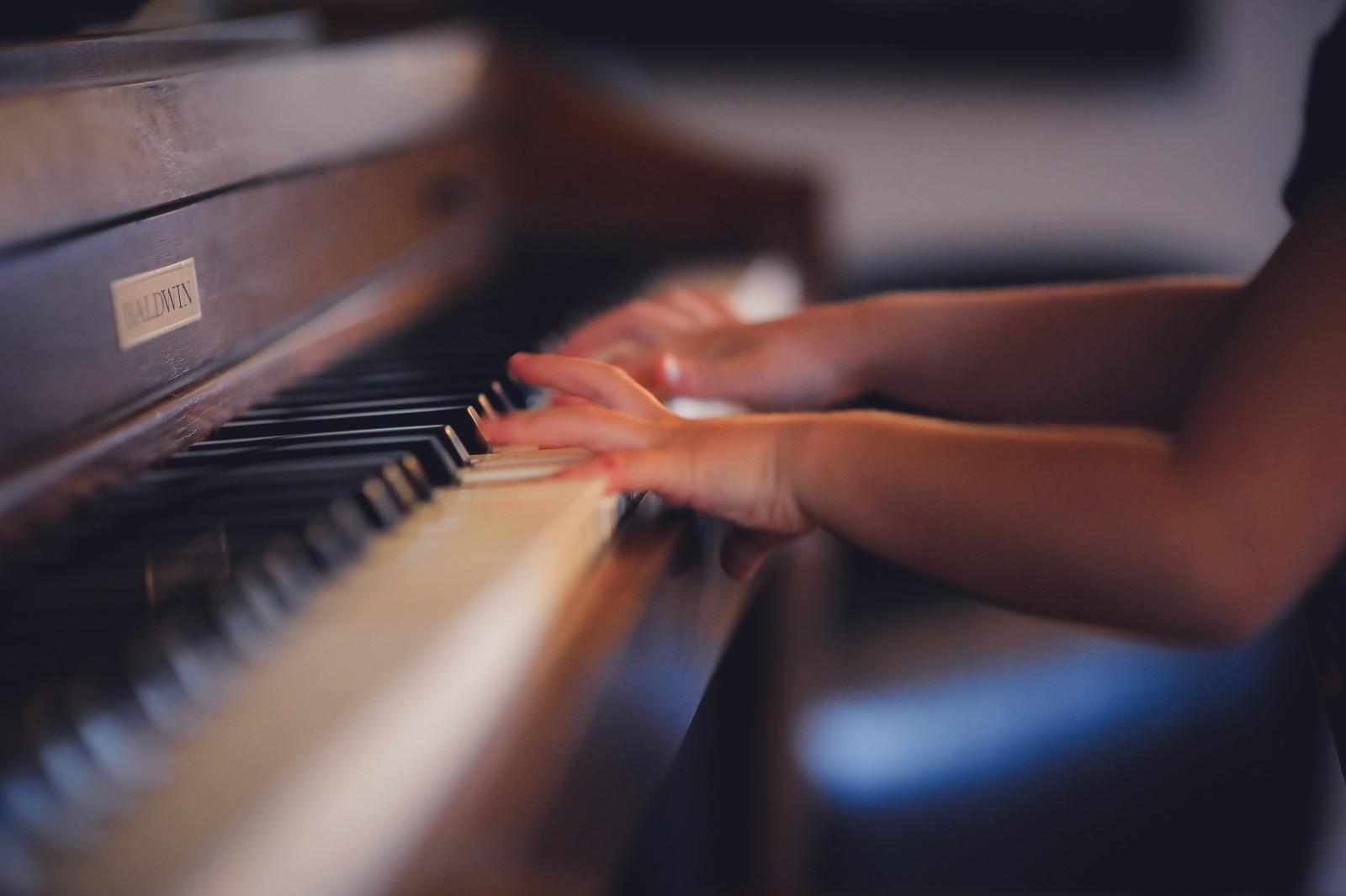Chapters
In a recent feature for Intelligent Life magazine, renowned children’s author Philip Pullman has chosen music as the most important school subject. He writes,
of all the things the body can do, the richest, the most interesting, the most emotionally and intellectually fulfilling thing is music. Every child needs to encounter music as early as possible, and I don’t mean just listen and then answer questions: I mean make, with voice, with clapping hands and stamping feet, with instruments of every kind.
Other public figures were also quizzed which subject they thought was most important at school. Alain de Botton chose ‘Emotional intelligence’, Jessica Lahey chose ‘Cultural Literacy’, Rose Tremain chose ‘History, backwards’, Herman Koch chose ‘Basic Geography’, Deb Wilenski chose ‘Open-air Dawdling’ and Simon Singh chose ‘Physics’.
You’ve just hung up the telephone, your first hour of piano classes has been scheduled. That’s right, it’s September and school is back in session. The same goes for pianists!
As a private instructor, you’ve been marketing your piano lessons all summer long and are now able to reap the benefits: you've got your first student!
But from now until the first day of piano lessons you’ll need to prepare!
In this article, Superprof will help you plan your individual classes, both in terms of content and how to interact with your student. In no time at all, teaching piano will become a natural habit for you.

Evaluate the level of your student
You’ve just arrived at your student’s house for your first at-home piano lesson.
You must now assess his or her level for playing the instrument. The first thing to do is simply ask the student to evaluate his or her own level of playing the piano. Good idea, right?!

Ask if they’ve already practiced, if they’ve gotten in touch with you to begin piano instruction, acquire a music education, or if they already possess rudimentary music skills.
Ask about his or her music theory level: as solfège and sight reading are of huge importance for learning the piano, evaluate your student’s capacity for reading sheet music (key of A, middle C, measures, sharps, etc.).
Once this information is understood and discussed, you’ll be in a good position to have an honest and clear conversation about the aims you and your student wish to achieve.
The best evaluation method consists in giving the student a piano test.
Seat him or her in front of a keyboard with a piece of piano music. As such, you’ll be able to observe if he or she knows how to read music.
This exercise has several benefits:
- Detect whether or not the student has correct piano playing posture
- Assess their solfège knowledge
- See if he or she knows rhythmic codes and piano notes (quarter notes, half notes, whole notes, sixteenth notes, breathing and pauses, tongs, triplets, etc.)
- Evaluate left hand/right hand coordination and the use of piano pedals
- Lastly, see if the student has already learned piano chords
As you don’t know one another very well yet, it would be a very nice gesture to teach the first class for free. (Nothing is better than free piano lessons!) This will ensure that you begin working together in the best possible conditions.
What level of proficiency do you need to teach the piano?
Creating a piano lesson
Whether you’re a piano teacher of all ages, or a professor of music improvisation or introduction, you must prepare a lesson plan to present to the student who wants to learn piano. (This prep is included in the price of a piano lesson.)
Solfège Exercises
At the beginning of each beginner piano lesson, start with ten or 15 minutes of solfège.
This way, you can get the most annoying exercise for learning music over with quickly!

Get your students used to reading music with a metronome. One trick consists of teaching them to tap the tempo with the foot, or hitting their hands on their thighs.
This will accustom them to measure time well and to learn to be a perfectionist, precise in their playing. This is extremely important for those who wish to learn to play the piano!
In developing solfège skills, your student will know if he or she is playing in tempo or not. Have them repeat the notes to a song out loud to you, or give them an informal singing lesson. Oh yes, as you know, singing is super useful for learning to play piano.
In addition to reading notes, invite your students to do rhythm exercises: see if they are capable of playing music notes in tempo (quarter notes, half notes, eighth notes, etc.). This will help with their ear training!

Self assessment of students’ work
In this part of the class, ask your student to recite what you’ve given him or her to work on in the previous lesson.
This is a quick and efficient way to see if your student has worked during the week.
Work on the spots the student finds challenging: if he or she stumbles over a piano chord, an arpeggio, a chord progression, or if there’s a lack of dexterity in their movement, for example, focus on it until you see progress.
Undertake technique exercises
In order to perfect your student’s music education, it’s important unknot the fingers, to make sure he or she doesn’t tense up on the keyboard for acquire a maximum dexterity.
Have your student practice piano scales and chord progressions, and make sure to be strict on the position of the fingers (for the ascending scale, the passage of the thumb after a major key to the right hand, and the passage of the major key after the thumb to the left hand).
Also, instruct him or her to work on octaves and harmony: this will also be a useful skill for alternating between classical piano and jazz piano.
Assign work for the next lesson
At the end of each class, it’s important that the instructor gives the student work to do for the following session. You’re not doing it to annoy your student, but so that he or she practices for a certain amount of time, training him or herself, when alone.
This is also a way to “win the loyalty” of your student. That is, by spending their free time practicing, your students will be invested personally in their piano instruction. This will be even more the case if you let them choose the music they’d like to work on.
There’s a lot in this for you, the piano instructor, too, who gets to be all proud when you point out your student’s improvement!
Find out how to set competitive rates for your piano lessons!
Managing the teacher-student relationship
With all these preparations, your piano instruction session is sure to be successful.
However, even the most prepared piano teacher has ups and downs: that is, external conditions may prevent an individual piano lesson from reaching its highest potential.

You might not always be on top of your game, and the same goes for your student, who might be feeling tired, sick, unmotivated or distracted.
There are many factors – fatigue, stress, brain malfunction, personal problems, etc. – that explain why things don’t always work out as planned, even if you are well prepared for teaching.
Personally, I’ve experienced this during my own tutoring sessions.
Sometimes, nothing seems to go smoothly – because the student isn’t receptive to my lesson, or is tired or thinking of something else – even if I’ve prepared my lesson well in advance. Sometimes, it’s just the “mood” that isn’t right.
To get around this, you must be creative and inventive. Try not to show your frustration, or that the lesson’s progress has been disrupted.
To get the lesson back on track, find your student an exercise to revise: a scale, some solfège, a piano chord progression, or a new piece of music to think about for the following week’s class… Or give your student a bit of breathing room. You’ll figure it out!
Learn more about how to give piano lessons!
Assess students’ progress and gradually set challenges
It’s super important to get a sense of the progress that your student has achieved by comparing the increments of difference in the level of piano playing as the weeks go by.
We advise you to establish a means of assessing each class, and address it every two or three months. This will allow you to applaud your student if there is clear improvement, especially if he or she has progressed from a beginner piano level to an intermediate level rapidly.
On the contrary, this assessment allows you to identify difficulties that persist and work harder on the aims that have not been achieved.
If your student’s progress is continual, you’ll need to gradually increase the level of difficulty of piano instruction.

Private piano instructors who ignore this step risk de-motivating their students in the long run, which could even prompt them to quit playing. Why not increase his or her motivate by planning a recital?
When the student’s level begins to stabilize, change your music styles: for instance, if you give lessons in classical piano, why not propose an exploration of jazz piano in order to enrich his or her music education?
Go from simplified arrangements to original scores. A beginner pianist doesn’t play like Beethoven or Chopin in one year of private lessons, but training on original pieces – the Clair de Lune Sonata or the Nocturne – will boost anyone’s level.
How can you expand your teaching by finding more students for piano lessons?
Choose the right lessons materials for each student
The last step for planning your private piano lesson: work with good tools.
As for any professional, the music instructor must use a distinct pedagogical method – just like for a guitar lessons, violin lessons or drum lessons. He or she must adapt didactic tools to each lesson.
For instance, if your student is an absolute beginner on the piano, it’s vital that he or she buys a piano method manual for a beginner.
Students’ playing and music styles will adapt to the manual. Suppose that they want to learn jazz music? You must then be aware of all the various piano jazz method books by different professors and swing virtuosos, and the available editions, in order to best guide students to become more advanced in their piano playing.
And because we are in the digital age, raise your students’ awareness of online piano and well as Youtube tutorials: these are means of learning how to play the piano for free. And you’ll be sure that they are working between lessons! Happy teaching!
Are you looking for a private music teacher for yourself or your child? Piano teachers, singing teachers, guitar teachers and many more music tutors can be contacted by searching the Superprof database of UK tutors. Or are you a teacher looking for jobs after teaching in schools? Why not consider private tutoring as an alternative.











How do you put 15 minutes Solfege in a half hour lesson?